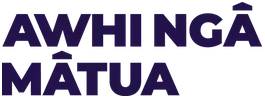
Identifying when a child may need extra support
All tamariki have mana and strengths that make them unique, and these need to be recognised. However, some children will need extra support to do well. The earlier that needs are identified, the better the outcomes for the child.
A child is their own person, with their own mana , strengths, interests and talents, and all tamariki have different challenges too. Difficulty with certain tasks can be a normal part of early childhood, but some tamariki may benefit from being checked by someone who knows more about what to expect at certain ages. The earlier any matters are identified that might need further monitoring, the sooner the child can get the support they may need to help them thrive.
Health professionals may use technical terms to describe differences in the ways that children develop. They are the only ones qualified to assess tamariki for potential developmental delays and give a formal diagnosis. Whānau supporters can focus on helping to identify the needs of tamariki and supporting whānau to seek advice if they are concerned.
Sometimes concerns may be flagged by people outside of the family who are able to step back from the situation and see things that whānau might not be able to. This may include teachers at an early learning service or kura , doctors, and nurses who notice areas that could benefit from looking into. It is important for whānau to attend recommended health checks, for example the B4 School Check, as these can pick up issues whānau weren’t aware of. This can lead to earlier support for tamariki, for example with vision or hearing.
Children are different and will have different needs
Children develop at different rates and reach milestones at different times. If there are concerns about any delays in development that may require extra support, a health professional will look at the following:
- Gross motor skill development – use of large muscles to sit, stand, walk, run, keep balance and change positions.
- Fine motor skills – things like eating, drawing, playing, and writing.
- Cognitive development – activities related to thinking, learning, and understanding, problem solving, reasoning and remembering.
- Social and emotional development – interacting with others, cooperating and responding to the feelings of others.
- Speech and language development – speaking, using body language and gestures, communicating with others, and understanding what others say.
Remember that just because there is a delay, that doesn’t mean there is an issue. Many tamariki will catch up in their own time. If there are concerns, whānau supporters may like to start the conversation by asking whānau about their own approach to understanding differences in tamariki. They may see things in a different light. Make sure you have a strong relationship with whānau when you’re having these conversations and take their culture and views into account.
Getting support early is important
The first step is for parents to talk to their family doctor and come up with a plan that makes sense from their cultural perspective. They can take an advocate with them if they want to. From there, it may be helpful to be referred to the local Te Whatu Ora Child Development Service, a paediatrician, or services provided through the Ministry of Education Early Intervention Services.
Early Intervention Services | Ministry of Education(external link)
Conversation ideas
Helpful resources for whānau
-

Awhi Ngā Mātua
An online community for parents and whānau of disabled and medically fragile tamariki.











